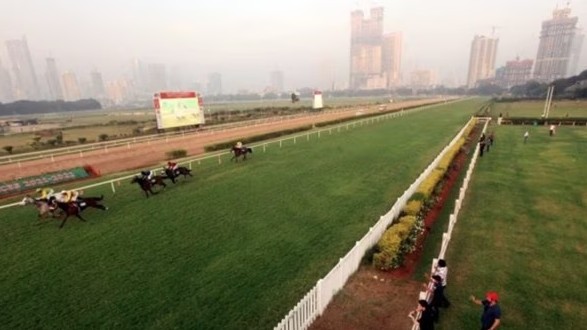A fresh controversy has emerged over the proposed development of land at the Mahalaxmi Race Course, with environmental activist Zoru Bhathena raising concerns about the potential violation of the lease terms between the BMC and the Royal Western India Turf Club (RWITC). He is now set to challenge the planned developments, urging municipal commissioner Bhushan Gagr. that the land should remain as an open space as stipulated in the original lease agreement.
In July, the civic body signed an agreement with the RWITC to acquire 120 acres of land for the ‘Mumbai Central Public Park’ at the racecourse. According to Bhathena, a recent RTI response he obtained reveals that the terms of the lease clearly mandate that the land at the racecourse be maintained as a permanent open space. However, the copy of lease deed between BMC and RWITC obtained through RTI, clearly states, the land must only be used for horse racing and other objects. It must not be used for any purpose not in compliance with law (must be permanent open space). “The RTI documents show that the lease deed contains a clause that allows for the land to be used for development only in accordance with the directions of the chief minister given during a meeting held on December 6, 2023,” he said.
He further added that, “the lease deed opens up the race course for Slum Rehabilitation Authority (SRA) projects which are not permissible on permanently open lands. It also allows the race course to be used for marriage, other functions and even opens up for political rallies for 45 days a year like Shivaji Park. BMC is aware that RWITC has sought permission for uses beyond the lease deed. How can the BMC and the state government bypass legal constraints by approving development projects that were never intended by the original lease,” questioned Bhathena.
The 211-acre land at Racecourse was leased to RWITC for over 100 years. After the lease expired in 2013, the BMC administration proposed to take over a part of the racecourse land to be turned into a “Central Park” which will span approximately 300 acres—comprising 175 acres of Mumbai’s coastal land, as a condition of renewing the lease agreement of the land, which was in possession of the RWITC. However, critics, including citizens and activists, had argued that the plan risked opening the door to commercial exploitation by land developers, potentially undermining one of the city’s few remaining open spaces.

